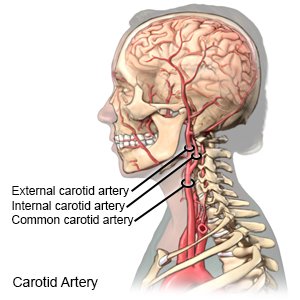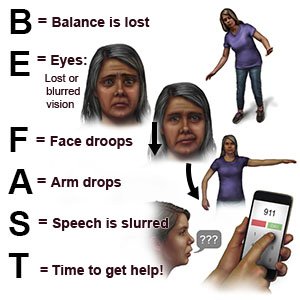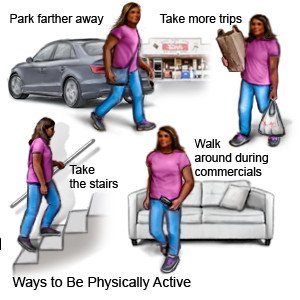Tcar (Transcarotid Artery Revascularization)
Medically reviewed by Drugs.com. Last updated on Aug 4, 2025.
Transcarotid artery revascularization (TCAR) is surgery to widen a carotid artery that is narrowed from plaque. You have a carotid artery on each side of your neck. Each supplies your brain with blood. Plaque is cholesterol and other substances that clump together and fill the artery. Plaque may build up and decrease or stop blood flow to your brain. A piece of plaque may also break free and cause a stroke.
 |
DISCHARGE INSTRUCTIONS:
Arrange to have someone call your local emergency number (911 in the US) if:
- You have any of the following signs of a stroke:
- Numbness or drooping on one side of your face
- Weakness in an arm or leg
- Confusion or difficulty speaking
- Dizziness, a severe headache, or vision loss

Seek care immediately if:
- A surgery site is swollen, red, or has pus coming from it.
- Blood soaks through your bandage.
- Your stitches come apart.
- Your arm or leg feels warm, tender, and painful. It may look swollen and red.
Call your doctor or surgeon if:
- You have a fever.
- You have questions or concerns about your condition or care.
Related medications
Medicines:
You may need any of the following:
- Aspirin helps thin the blood to keep blood clots from forming. If you are told to take aspirin, do not take acetaminophen or ibuprofen instead. Do not take more or less aspirin than directed. This medicine makes it more likely for you to bleed or bruise.
- Blood thinners help prevent blood clots. Clots can cause strokes, heart attacks, and death. Many types of blood thinners are available. Your healthcare provider will give you specific instructions for the type you are given. The following are general safety guidelines to follow while you are taking a blood thinner:
- Watch for bleeding and bruising. Watch for bleeding from your gums or nose. Watch for blood in your urine and bowel movements. Use a soft washcloth on your skin, and a soft toothbrush to brush your teeth. This can keep your skin and gums from bleeding. If you shave, use an electric shaver. Do not play contact sports.
- Tell your dentist and other healthcare providers that you take a blood thinner. Wear a bracelet or necklace that says you take this medicine.
- Do not start or stop any other medicines or supplements unless your healthcare provider tells you to. Many medicines and supplements cannot be used with blood thinners.
- Take your blood thinner exactly as prescribed by your healthcare provider. Do not skip a dose or take less than prescribed. Tell your provider right away if you forget to take your blood thinner, or if you take too much.
- Cholesterol medicine helps lower the amount of cholesterol in your blood. It may help decrease new plaque from forming in your carotid artery.
- Take your medicine as directed. Contact your healthcare provider if you think your medicine is not helping or if you have side effects. Tell your provider if you are allergic to any medicine. Keep a list of the medicines, vitamins, and herbs you take. Include the amounts, and when and why you take them. Bring the list or the pill bottles to follow-up visits. Carry your medicine list with you in case of an emergency.
Self-care:
- Do not lift anything heavy until your healthcare provider says it is okay. This may be 10 to 14 days.
- Ask when you can return to your regular daily activities. Your provider will tell you when you can go back to work, drive, or do other activities. This is usually right away, but it depends on your overall health.
Prevent a stroke:
- Do not smoke, and avoid secondhand smoke. Nicotine and other chemicals in cigarettes and cigars increase your risk for a stroke. Ask your healthcare provider for information if you currently smoke and need help to quit. E-cigarettes or smokeless tobacco still contain nicotine. Talk to your healthcare provider before you use these products.
- Eat a variety of healthy foods. Healthy foods include fruit, vegetables, whole-grain breads, low-fat dairy products, chicken, and fish. Choose fish that are high in omega-3 fatty acids, such as salmon and fresh tuna.

- Limit sodium (salt). Add less table salt to your food. If you add salt during cooking, do not add more at the table. Read food labels and choose foods that are low in sodium. Your healthcare provider may suggest you follow a low-sodium diet.

- Reach or maintain a healthy weight. Ask your healthcare provider what a healthy weight is for you. Your provider can help you create a safe weight loss plan, if needed.
- Be physically active, as directed. Exercise helps improve blood flow and can help you manage your weight. Exercise can also help lower your cholesterol and blood sugar levels. Try to get at least 30 minutes of exercise 5 times each week. Try to be physically active every day. This may include walking, riding a bicycle, or swimming. Your healthcare provider can help you create an exercise plan that works best for you.

- Limit alcohol. Alcohol can increase your cholesterol level. Your provider may tell you to limit alcohol to a certain number of drinks within 24 hours and within 1 week. A drink of alcohol is 12 ounces of beer, 5 ounces of wine, or 1½ ounces of liquor.
Follow up with your doctor or surgeon as directed:
You may need ongoing tests to check the plaque buildup in your arteries. Write down your questions so you remember to ask them during your visits.
© Copyright Merative 2025 Information is for End User's use only and may not be sold, redistributed or otherwise used for commercial purposes.
The above information is an educational aid only. It is not intended as medical advice for individual conditions or treatments. Talk to your doctor, nurse or pharmacist before following any medical regimen to see if it is safe and effective for you.
Further information
Always consult your healthcare provider to ensure the information displayed on this page applies to your personal circumstances.
